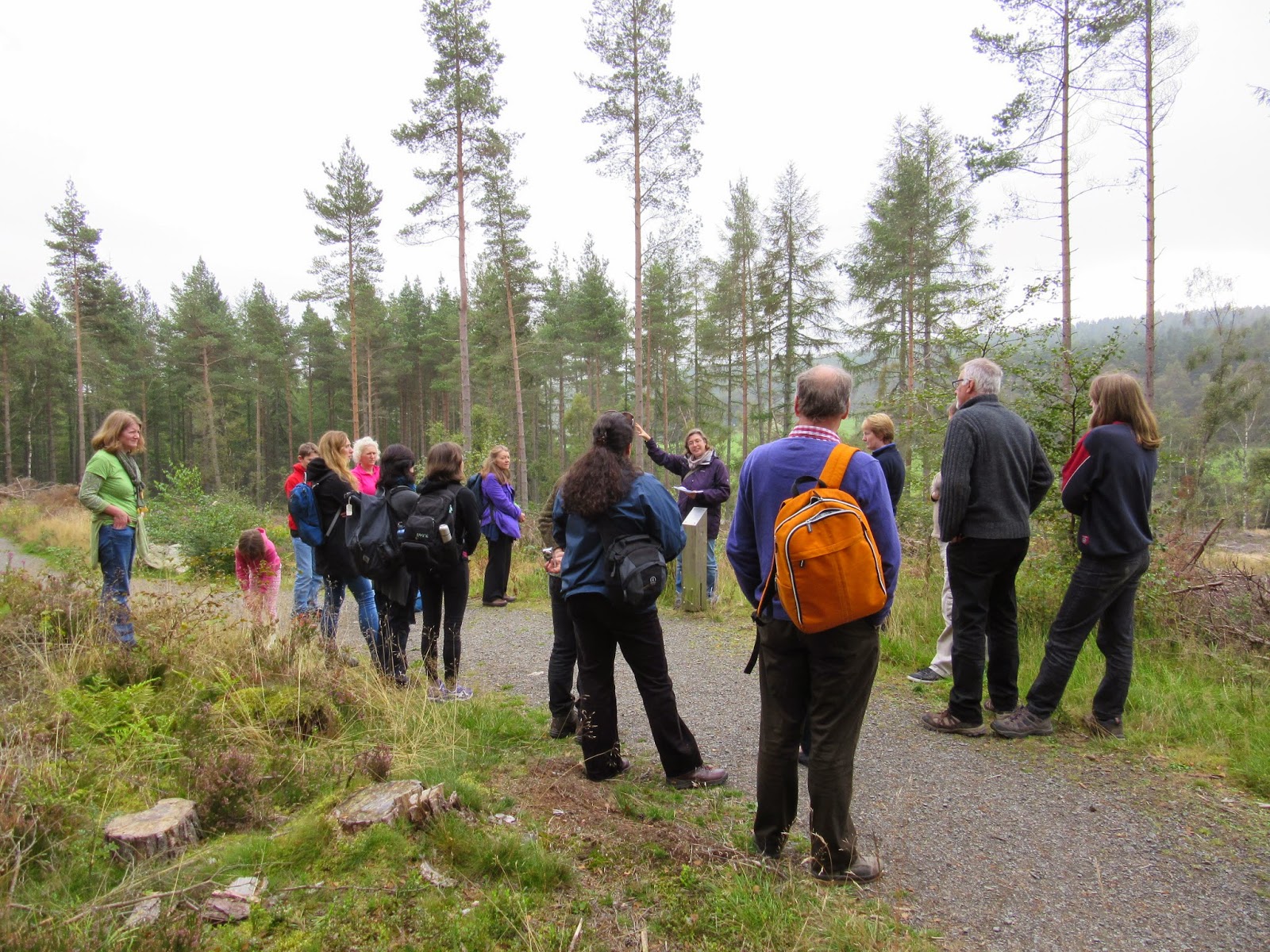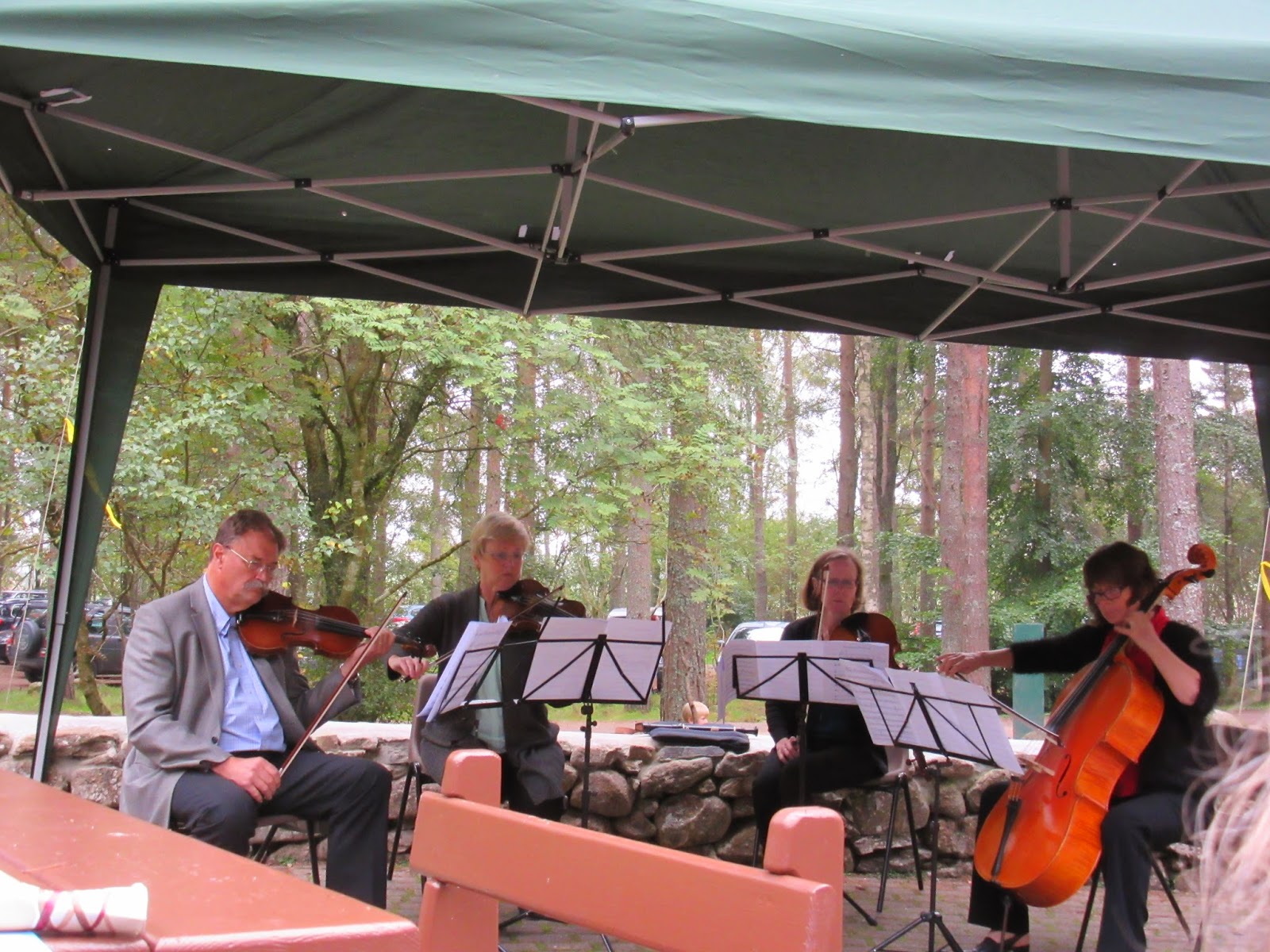Two poems have influenced my project
Sharing at the Shoreline in particular. Alice Oswald’s poem Dart presents a sound-map of
the river Dart based on the language of people who live and work on along it.
On our journey from source to mouth we meet a walker, a fisherman and bailiff,
a waternymph, a dreamer, a stonewaller, a ferryman, a sealwatcher. What excites
me in this booklong poem is the way Oswald creates a rich experiential image of
the river by letting many different people – and mythical figures - speak.
The second poem is Solway by Kenneth Steven, published in
his collection Iona. In this poem, ‘The sailors climb aboard the land / The
voices rise and fall along the road’ while ‘Long across the bay is England /
Lying still at anchor, far and blue’. It is a poem I often return to for the
different kind of experience it offers, it contains a
perspective I had not thought of myself.
To create a similar dialogue and to open myself up to
perspectives I would not otherwise think of, I have held a number of poetry
workshops and walks. During the workshop in the Tolbooth Museum in Stonehaven a
fisherman told me that what drew him to the sea was the challenge. During the walk at Forvie we spoke about seals and one participant
wrote about a seal's feelings and thoughts when a person approached her: ‘What do
you want, what will you do?’. During the workshop with the Stonehaven Writing
Group a participant spoke about his experiences of the coast as
an RAF pilot whilst other participants wrote about lighthouse-high waves and
put on a seal skin of to become a sea mermaid.
Gradually, I have come to realise that my poems reveal my dialogue with the landscape and and my responses to what I read, see and hear about the Aberdeenshire coast. In Johnshaven, for example, I was struck by
the symbolism of a collection of anchors lying in front of the disused lifeboat
station. When I started my walk I read a newspaper story about a sea angler who
had drowned. The week before I had been watching a sea angler whilst
a seagull on a rock on the opposite site of the cove was angling for the same
fish. The article put this image in perspective. Likewise, a chance viewing of a film at the Aberdeen Maritime Museum about
coastal salmon fishing around Forvie provided the storyline for the salmon nets I had passed between Aberdeen and Newburgh.
A form of poetry that I feel particularly attracted to is
dramatic monologue. Spoken, and addressed to someone else, I value the
opportunity it provides to construct an argument by letting the speaker respond
to (implied) actions and reactions from the addressee. A letter can be seen as
a specific form of dramatic monologue. In my poem Letter to Alice I have juxtaposed
my own experiences of the coast as a walker against those of a salmon
fisherman.
Letter
to Alice
What is sand and salt water to
The bodies
of a walker, a fisherman, a bird?
I have been
asking myself this question ever since
I started
walking the coastline north.
The knife I
spoke about is blunt,
Its edge
softened by sand and salt.
My feet not
cut
But
massaged by sand, rasping and raw.
You walked
the riverbanks, heard the currents gather stories.
I walk in
the turbulence where your stories
Meet
horizons that won’t alter
Until I
face the afternoon sun past Fraserburgh.
Sand and
salt water are in my step
But never
will I return to the same grain of sand,
The same
rock pool, the same gully.
How different sand and salt water are to
The salmon
fisherman whose path I crossed this morning!
He knows
the movements of the moon, the waves, the wind.
His feet
tell him about the depths of the sea,
The shapes
of sandbanks, the pull of currents. He can
Read the
tides from the sway
Of his nets
between the poles he staked.
Like your path,
my path follows the edge of the water,
The salmon fisherman crosses the beach
And enters. The water pulls
Around his ankles, his calves, his knees, his waist
– deeper still
To check his nets for migrating salmon.
My gaze cuts out a narrow path between land and sea,
but
The eyes of a salmon fisherman
Cannot affirm a safe pathway.
What is sand and salt water to
The bodies of a walker, a fisherman, a bird?
I am learning, Alice.
Copyright text, image and poem Petra Vergunst










